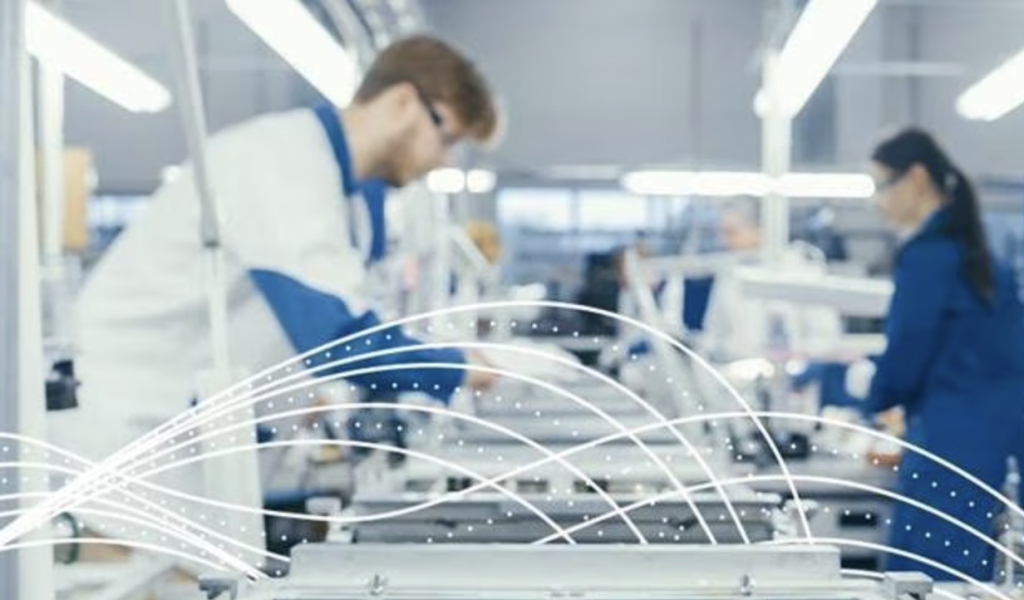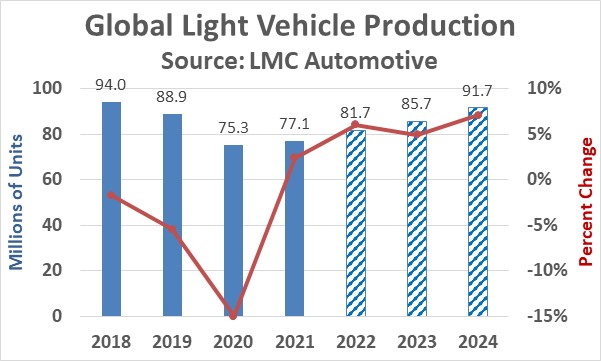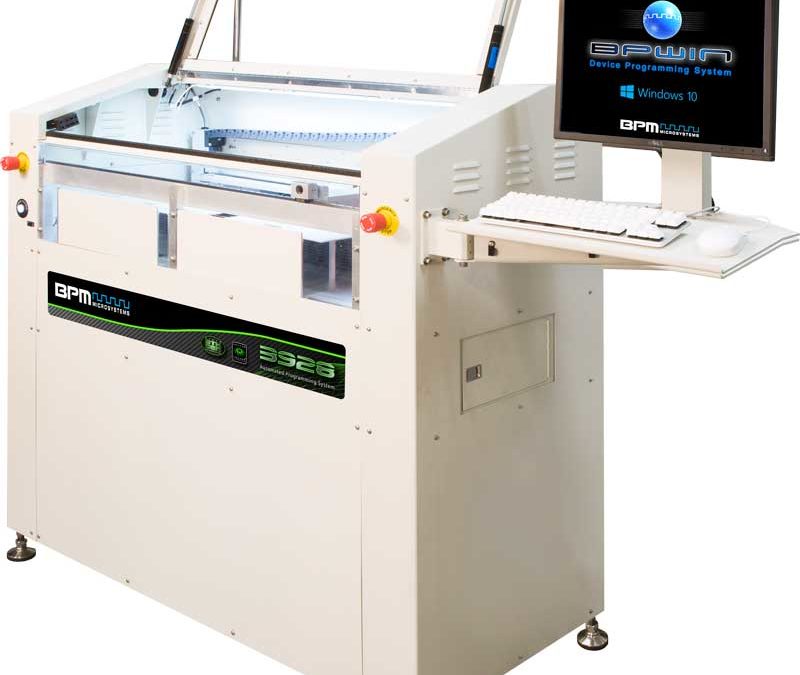
by Scott Bronstad | Feb 28, 2023 | Announcements, Automotive, News
Global SMT & Packaging Magazine is reporting that Flex, a leading global manufacturer, has opened a new learning center in Jalisco, Mexico to provide advanced manufacturing skills training to over 2,000 employees annually. This initiative will support the company’s automotive operations and accelerate the next generation of mobility. The learning center offers training on surface mount technology, robotic assembly, and automated optical inspection, enabling employees to advance their skills and foster a learn-and-adapt environment. With a commitment to investing in its employees, Flex is positioning itself to enable innovation and drive growth in the automotive industry.
To read the full article on how Flex is investing in automotive operations, click here.
More News from Global SMT
https://www.globalsmt.net/world-news/us-led-semiconductor-alliance-setting-up-early-warning-system-to-protect-supply-chains/
More Articles

by Scott Bronstad | Oct 4, 2022 | Announcements, Automotive, News, Technology
By Stelios Diamantidis, Senior Director, Synopsys Autonomous Design Solutions
There hasn’t been another time in recent memory where semiconductors have become critical to fueling the electronics industry’s economic framework. The global chip shortage has become abundantly clear, which continues to distress industry sectors from automotive to consumer electronics.
In addition to holding back global economic growth and making life difficult for consumers and businesses worldwide, the shortfall in manufacturing capacity is uneven, affecting legacy process nodes far more than mid-performance nodes.
While semiconductor experts have been hard at work on scoping solutions, the situation has looked insoluble- simply put, semiconductors are extremely hard to design and manufacture; supply chain effects are very difficult to absorb due to this lack of flexibility.
Enter silicon remastering, a new AI-driven design framework with the potential to transform the global chip supply chain. To understand how we must acknowledge the root of the problem: an imbalance in manufacturing capacity. Process nodes built on legacy silicon technologies are in extremely short supply. With them running out, using past technologies to replenish them is no longer a viable option.
Read the full Embedded Computing Design article here
Automotive Device Shortage Update | Bring Device Programming In-House (Video) |

by Scott Bronstad | Sep 6, 2022 | Automotive, News
Most automotive companies continue to experience shortages of critical parts and components, driven by supply chain issues since 2020. In an excellent article from Electronics Weekly, titled “Auto chip shortage could be easing,” David Manners points to several signs the shortages of semiconductors may be behind us in the next year.
Causes of the chip shortages
From the article, here are some of the reasons for the global automotive shortages
Automotive manufacturers cut back on semiconductor orders severely at the beginning of the COVID-19 pandemic in early 2020. The auto companies were fearful of being stuck with excess inventories of cars if demand fell significantly due to the pandemic. When the automakers tried to increase orders, they had lost their place in line and were behind other industries such as PCs and smartphones.
Many automakers used a just-in-time ordering system to avoid excess inventories. This left them with almost no buffer inventories. Also, most semiconductors used in automotive are bought by the companies supplying the systems (engine controls, dashboard electronics, etc.) rather than the automakers, leading to a more complex supply chain.
Semiconductors used in automobile production have long design-in cycles and must be qualified; thus, it is difficult for an automaker to change suppliers in the short term.
The article looks at all the big automakers and their prospects for returning to full production; it also highlights what the semi-houses are doing to ramp up to meet demand. Learn more about how BPM manufactures all its systems in their ISO 9001:2015 certified plant located in Houston, Texas; find out how BPM makes device programming easy, fast, and affordable at www.bpmmicro.com/device-programmers.
Read Electronic Weekly Article
Other links:

by Scott Bronstad | Jul 27, 2022 | Announcements, Automotive, News
 BPM Microsystems is pleased to announce the sale of an Automated Programming System to an existing Tier 1 Automotive OEM customer. “This is fantastic news and an especially strong sale considering the economic backdrop right now,” says William White, founder, and CEO of BPM Microsystems. “We love repeat orders– even when the first machine was so good it took over 15 years to replace.”
BPM Microsystems is pleased to announce the sale of an Automated Programming System to an existing Tier 1 Automotive OEM customer. “This is fantastic news and an especially strong sale considering the economic backdrop right now,” says William White, founder, and CEO of BPM Microsystems. “We love repeat orders– even when the first machine was so good it took over 15 years to replace.”
Because of non-disclosure, BPM cannot divulge too much but can say the purchase was made by an Original Equipment Manufacturer that provides high-reliability automotive systems. They have been using a BPM 4X Automated System for over 15 years. The company is augmenting it with BPM’s 3928 with four 9th Generation Sites that can program up to 16 devices concurrently. The smaller footprint 3928 has a maximum throughput of 1,432 Devices Per Hour (nearly 30% greater mechanical DPH and more than double the maximum socket capacity of their 6th Generation system). Some of their legacy device programming will continue to be produced on their BPM 4610; a hallmark of the typical return on investment achievable on the BPM automated programming systems.
3928: Tier 1 Automotive Solution
The 3928 comes standard with WhisperTeach™ automated Z-Height teaching for fast, reliable set-ups, and the CyberOptics LNC120 camera for component auto measure (fast set-ups) and on-the-fly alignment for maximum first pass yield and throughput. The 3928 is outfitted with the TM-50 Tape Loading system and the latest 3000-Series Fiber Laser, capable of producing machine-readable QR codes and barcodes for ultimate component traceability. Laser systems generate dust (a bad thing in an SMT environment); the BPM laser system is equipped with a two-stage dust collection system that is second-to-none in offline programmers.
“Customers have choices when they buy systems. Their vote of confidence says a lot about the productivity and quality they achieve and our ability to keep them happy,” says Mr. White.
BPM manufactures all its systems in their ISO 9001:2015 certified plant located in Houston, Texas, and its products carry the CE Mark. To learn how BPM makes device programming easy, fast and affordable, go to www.bpmmicro.com/device-programmers.


